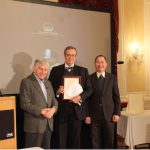February 22, 2026
2025 as the International Year of Quantum Science and Technology
This year will be a big one for quantum computing, at least according to the United Nations: 2025 is officially the “International Year of Quantum Science and Technology,” a worldwide initiative to raise awareness of technological progress and encourage new advances.
It also coincides with the 100th anniversary of the birth of modern quantum mechanics, which has given us everything from lasers to rare-earth magnetics, the internet to global navigation. The modern world would look very different without quantum science.
But we’ve only scratched the surface of what’s possible. Although the technology is still nascent in many forms, quantum computing could change life as we know it.
Quantum technologies could transform medicine and artificial intelligence, and have the potential to be used for applications ranging from financial modeling to cryptography, designing new materials for superconductors and better batteries, and accelerating machine learning.
Unlike classical computers, which use binary digits (or bits), representing information as either 0 or 1, quantum computers use quantum bits, or qubits, which can exist as both zeroes and ones at once. This means it can solve complex problems at an exponentially faster rate.
Think of it like a mouse trying to find its way through a maze. With classical computers, the metaphorical mouse has to try each and every path, eliminating every possibility until it finds the correct one and the eventual way out.
https://nypost.com/2025/05/03/science/why-the-world-is-in-a-race-to-achieve-quantum-superiority/









